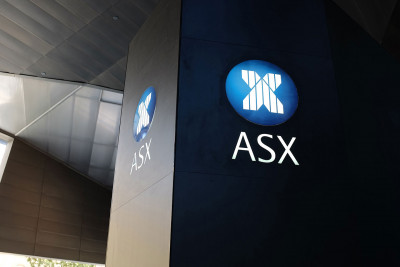Weekly market update - 26th of March 2019
Written and accurate as at: Mar 26, 2019 Current Stats & Facts

While company-specific news-flow remains thin in the wake of reporting season, lower bond yields suggest that some of the recent optimism around global growth softened.
The local market was broadly flat for the week (+0.3%), however, we did see a material shift in bonds. US 10-year Treasury yields fell 15bps to 2.44% as the Fed struck a more doveish tone than most had expected, removing all rate hike expectations for 2019. Australian 10-year yields fell 15bps in sympathy and now stand at 1.83%, while more evidence of easing by the European Central Bank has seen the German 10-year yields almost dip back into negative territory.
The upshot is that the prevailing outlook for global economic growth - which had been reasonably positive in recent weeks - has softened again. That said, at this point sentiment remains better than we saw in the last quarter of 2018. In equity markets, this has seen some rotation back towards defensive bond-sensitives, with the S&P/ASX 200 AREIT sector (+0.9%) outperforming. We also saw some cyclical selling down in Friday’s US session. This means that while the Australian resource sector managed to buck last week’s caution and gain +1.6%, it is likely to see some pressure early this week.
Interestingly, in recent years the growth stocks have tended to benefit alongside the defensive sectors in this kind of environment. This didn’t occur last week: Reliance Worldwide (RWC, -4.6) underperformed, for example, as did Treasury Wine Estates (TWE, -4.3%). This may prove to be a short-lived episode, but it is worth watching to see if heady valuations are hampering this part of the market.
At a stock level, Caltex Australia (CTX, -7.2%) delivered a disappointing update ahead of the buy-back, with management flagging disappointing trends in their retail petrol business. This was ascribed to the lag in higher oil prices flowing through to the pump and there is a good chance that they will get this back. Nevertheless, the revelation of a hole in earnings only three weeks after their half-yearly report was not well received. CTX is buying back $260m of its $6.9bn market cap.
Boral (BLD, -5.9%) also underperformed as sentiment around housing continues to deteriorate, alongside the realisation that weaker new housing starts may persist for longer than many realise. The news that BLD’s CEO has also taken on a board position at Sims Metal Management (SGM) may also have played a role.
An eventful week in British politics weighed on UK-based banking group CYBG (CYB, -6.0%), as the proposed Brexit deal was rejected by Parliament and the government now seeks an extension from the European Union. Elsewhere in financials, AMP (AMP, -3.5%) underperformed in a week in which Westpac (WBC) announced it was withdrawing from the advice business, the last of the big four banks to do so. AMP’s core business remains advice and WBC’s decision reflects the challenges facing the industry in the wake of the Royal Commission.
Elsewhere, Nine Entertainment (NEC, -4.3%) gave back a little of its recent strong run and Sydney Airport (SYD,-4.2%) fell on softer domestic traffic data. Whitehaven Coal (WHC, -2.6%) was one of the few resource stocks to lag, as the issue of a seeming blockade on Australian coal at Dalian persists. This is not a direct issue for Whitehaven, which exports very little coal to China, but it has prompted some fear of softer prices for Newcastle coal if alternative buyers cannot be found.
Aristocrat Leisure (ALL, +5.1%) was among the market’s best. Its bounce back from a softer period has been helped by the provision of more detail around its digital strategy, which will be critical given the structural demographic challenges facing its traditional gaming machine business. The REITs did well, led by Unibail-Rodamco-Westfield (URW, +4.9%) as bond-sensitives outperformed in Europe.
Both BHP (BHP, +3.1%) and Rio Tinto (RIO, +1.1%) outperformed. The extent to which production issues in Brazil will impact iron ore prices remains unclear, with the near-term fate of several mines currently tied up in legal tussles. Nevertheless, consensus price expectation for this financial year and next continue to creep higher.
Finally, the packaging company Amcor (AMC, +2.5%) rose on signs that their tie-up with Bemis in North America is close to fruition. AMC struggled at times in 2018 given its bond sensitivity and the headwind of higher input costs, alongside some concerns over the size of the Bemis deal. All three issues now appear to be receding and AMC remains one of our preferred defensive industrial exposures.










